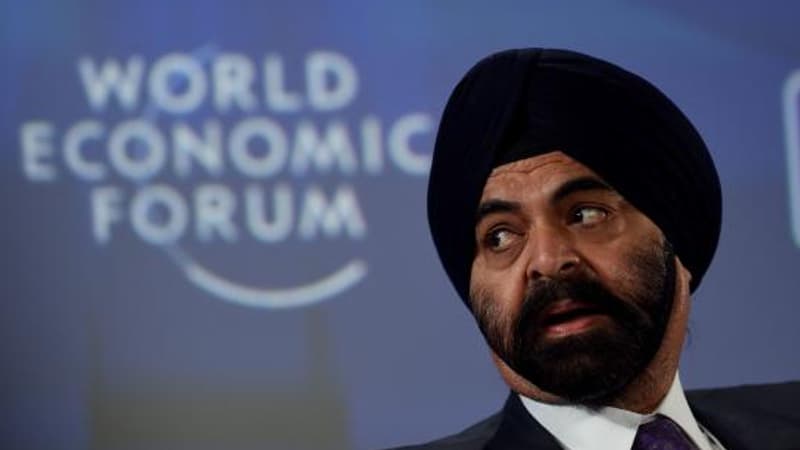The United States candidate for the presidency of the World Bank (WB), Ajay Banga, was chosen this Wednesday to lead the institution by its board of directors, the institution confirmed in a press release.
United States candidate, 63-year-old business leader, the Indian-American has repeatedly assured that he wants to give priority, during his tenure, to financing the fight against global warming and the reform of the World Bank.
He should take up the post for a five-year term on June 2, the World Bank said.
Traditionally, the World Bank is the preserve of the United States, a citizen of which has always been in charge of the Bank since its creation, following the Bretton Woods agreements in 1944.
Hegemony
But this hegemony was increasingly challenged, particularly by the main emerging countries, led by Brazil, China, India and Russia, which for several years have wanted to see their place in international financial institutions strengthened.
Amid rising geopolitical tensions, the US decision to nominate Indian-born and raised Ajay Banga was anything but trivial, as the US tries to reach out to the other Asian giant to counter Chinese influence in the region.
As soon as he was appointed, Ajay Banga embarked on a world tour, with the aim of promoting his candidacy and gaining support from as many countries as possible, particularly emerging and developing countries.
Thus he was able to count on India, Kenya and even South Africa, who supported his candidacy.
But not only, since Ajay Banga was also able to count on the support of a certain number of French-speaking countries, in particular, as Abdoul Salam Bello, a World Bank administrator who represents 23 African countries, reminded AFP in mid-April.
“I think the campaign is going very well,” a US Treasury official said in late March, “his experience is considered essential, as is his knowledge of the private sector and public-private partnerships, essential in the context of the World Bank”.
Passing from theory to practice
“We believe that his experience will be very important to help the WB to strengthen the mobilization of the private sector. During our discussion, he spoke of very interesting practical solutions to strengthen this commitment of the private sector”, added Salam Bello.
“When we know that we may need financing, it is difficult not to support the candidate who will be elected,” however, an African minister present in Washington during the spring meetings of the World Bank and the International Monetary Fund (IMF) confided to AFP. ), in early April.
In a context in which more than sixty poor and emerging countries are on the verge of a debt crisis or hit by it, the financing of the two institutions is even more essential to avoid the collapse of their national economies.
Especially since the rise in rates by the main central banks affects these countries’ access to financing, while sharply increasing costs, further complicating the budgetary situation of these countries.
1000 trillion dollars per year
However, now the most difficult part remains for Ajay Banga, who will have to meet expectations on two burning and related issues: the reform of international financial institutions, starting with the World Bank, and the increase in financing for the fight against global warming. climate.
Especially since the needs are enormous, as the IMF has repeatedly pointed out: a minimum of 1,000 trillion dollars a year will be needed, during the next few years, to help emerging and developing countries cope with them.
During the spring meetings, the main contributors to the WB agreed to increase their financing capacities by 50 billion dollars over the next ten years, a significant effort but notoriously insufficient compared to the needs.
In response, Ajay Banga made no secret of his desire to involve the private sector.
“There is not enough money, be it in the multilateral development banks, in the big governments of the developed world, in civil society, even with the most philanthropic intentions,” he insisted at the beginning of March.
Among the recommended solutions, Ajay Banga foresaw in particular rethinking the financing approach for specific projects, in order to be more incentivizing with respect to the private sector. He will now have the opportunity to move from theory to practice.
Source: BFM TV


